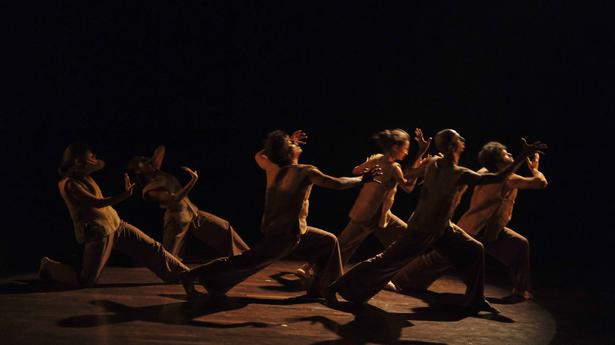
Interrogating a decade of dance: PECDA and the contemporary dance landscape in India
The Hindu
Can a biennial “competition” become a focal point for nurturing and sustaining dance makers in the country? As PECDA came to a close in Bengaluru last weekend, it offered some answers
“This is my first video in Insta... old school basic l hope pasand ay ga [hope you’ll like it]” reads dancer and choreographer Pradeep Gupta’s first Instagram post on February 10, 2017. He dances to the camera in a corridor weaving big movements around the metal, tile and wood that surround him. Behind him, a man fiddles with a locker key, while a third man walks towards the camera, breaking into a grin as he sees Gupta move.
Five years and 211 Instagram posts later, Gupta shares another update — a photo of himself with the Prakriti Excellence in Contemporary Dance Awards (PECDA) trophy. Gupta was the 2022 winner of the biennial open-entry dance competition organised by the Prakriti Foundation last weekend.
Gupta’s win sealed five editions of PECDA since it began in 2012, with a gap in 2020 due to the pandemic. Every two years, dance makers based in India are invited to submit a short video and proposal for a new performance made for a proscenium space. In 2022, 57 artists applied, of which 18 were shortlisted to perform at the Bangalore International Centre. Five performances were chosen for the finals. Dancer-choreographer Parth Bhardwaj from Bengaluru was the runner-up with his solo work Unsaid, while Kolkata-based Promita Karfa’s Aki Buki: The Ingenious Madness, performed along with Abrar Saqeeb, received special jury mention.
As the winner, Gupta receives a ₹5 lakh grant to develop his 10-minute sketch into a full-length work, along with performance opportunities in a multi-city tour. He will be mentored by French choreographer Rachid Ouramdane, 2022 PECDA jury member and director of the Chaillot-Théâtre National de la Danse in Paris. Ouramdane is a veteran of France’s National Choreographic Centre (Centre Choreographique National), a nationwide network of choreographic hubs aimed at strengthening the French dance scene.
For former winners, PECDA has helped expand the scope of their work. Bengaluru-based dancer-choreographer Deepak Kurki Shivaswamy had created a solo and a few works within educational programmes when he won the inaugural edition in 2012. The award allowed him to create an evening-length work. Speaking about the dance environment in India at that time, he says, “In the early 2010s, there were few places which offered the environment and skill sets to create dance work. There was the Gati Summer Dance Residency, the Attakkalari biennial and FACETS residency, and PECDA. These projects exposed more creators to the process of making work.”
2014 and 2016 winner Surjit Nongmeikapam of Imphal shares this sentiment. “I was focussing on solo work, but after winning PECDA, I had to make a longer version of the piece and had the opportunity to begin working with other people. Manipur is also very isolated, so the award proved helpful to meet others in contemporary dance.”
From the fledgling scenes Shivaswamy describes, the contemporary dance landscape in India has grown to encompass training programmes, residencies, festivals and a few grant opportunities. Most initiatives are funded by a precarious mix of individual and institutional donations, and money raised from classes or performances. But more programmes mean more participants, and contemporary dancers are increasingly likely to hail from non-metropolitan regions.











